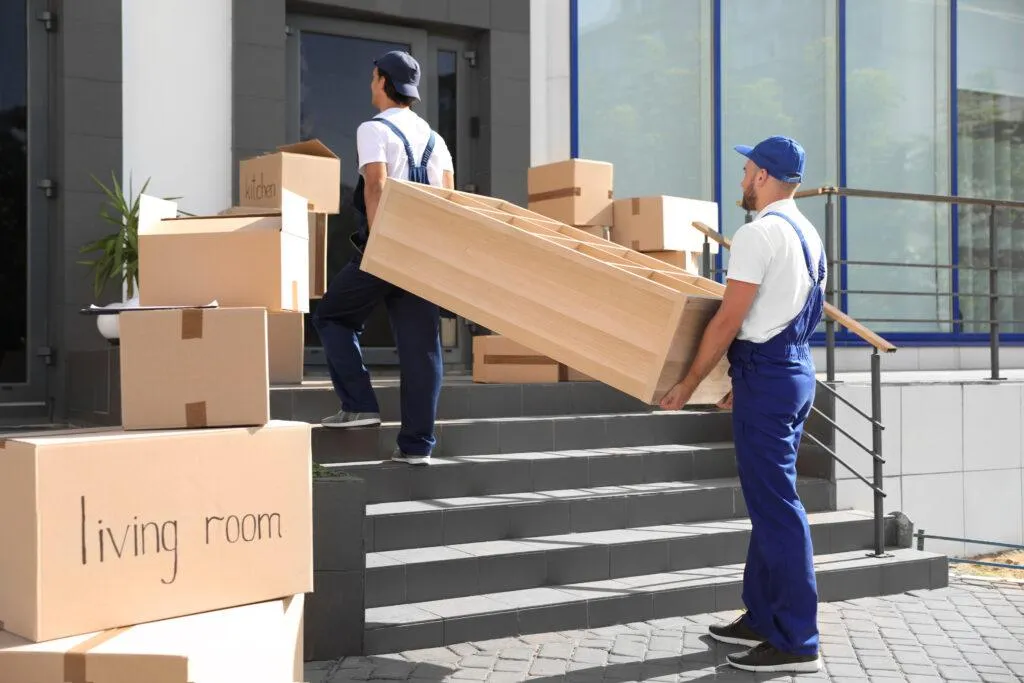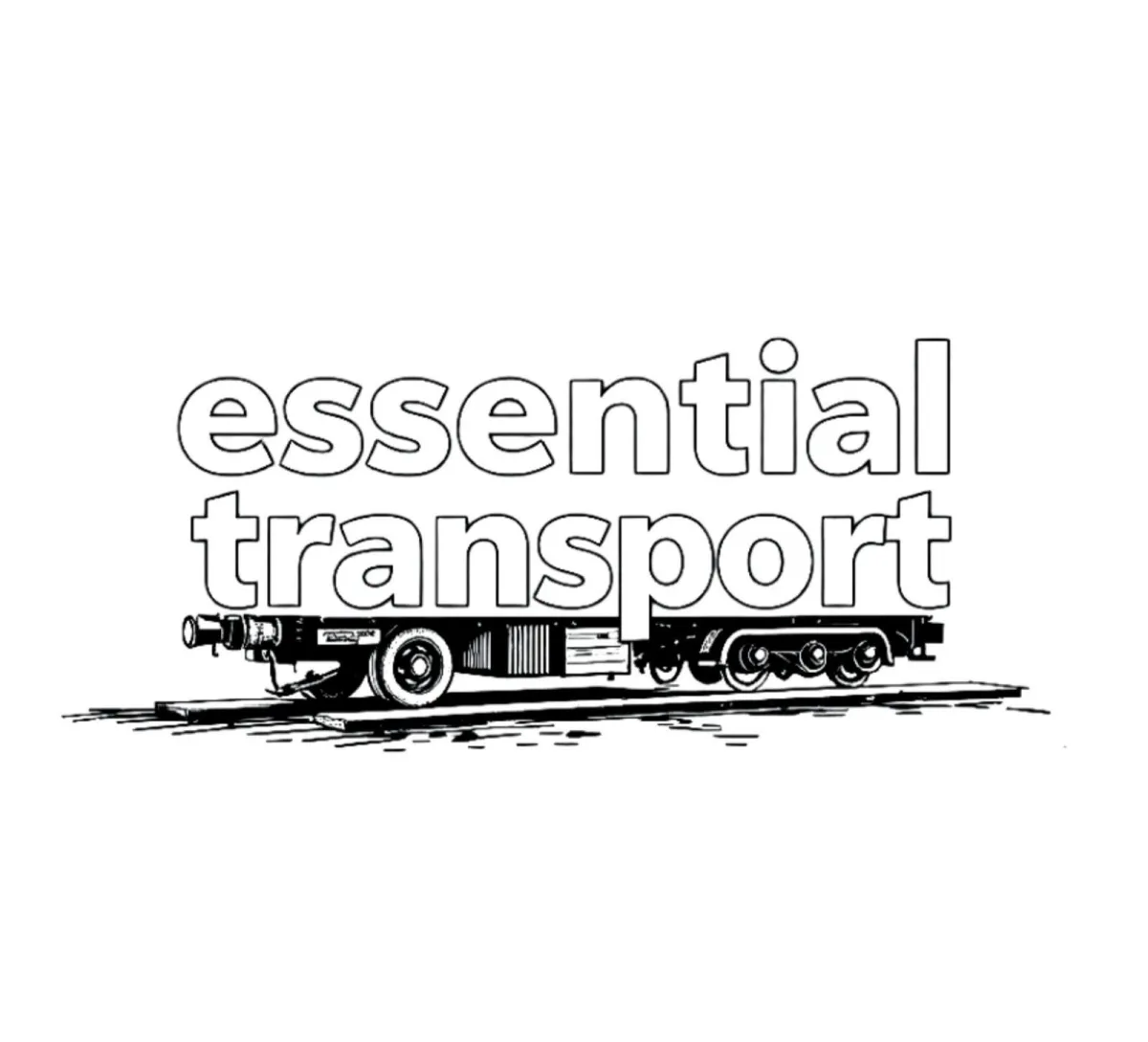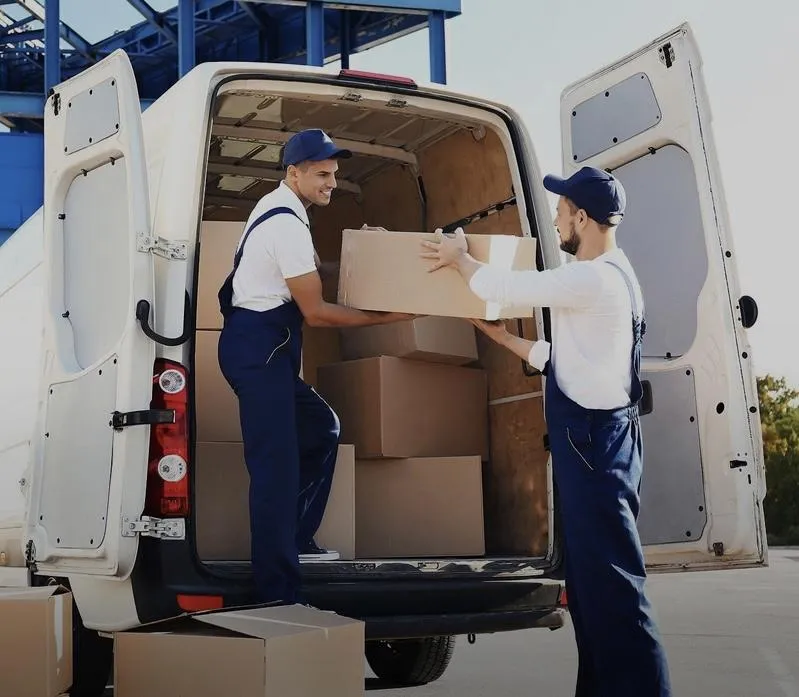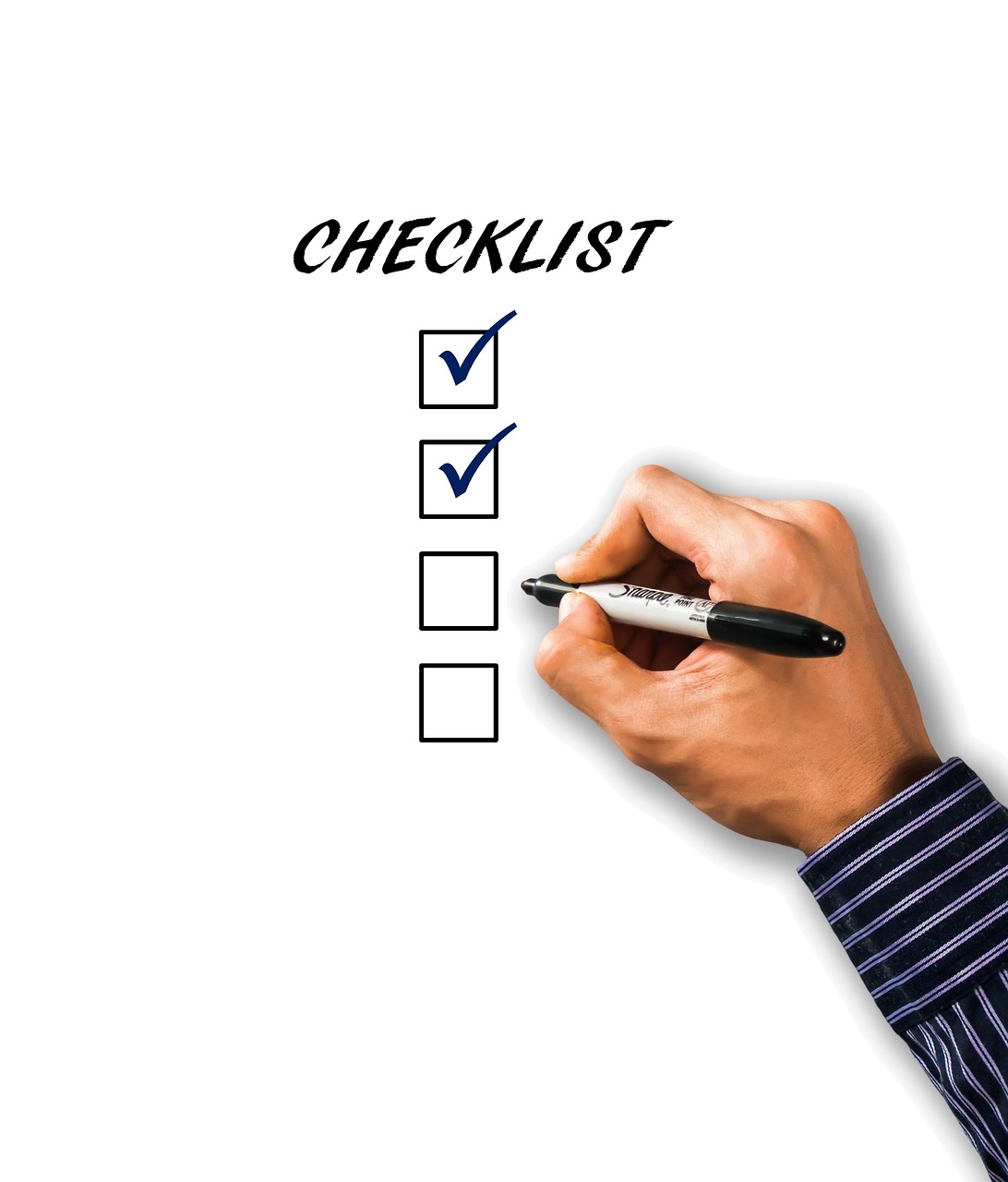Smoove Move Courier
SMÜVguard® Coverage Eligible
★ ★ ★ ★ ★
Rates Include:Courier/Transport
$2.49
Smoove Move Mover
SMÜVguard® Coverage Eligible
★ ★ ★ ★ ★
Rates Include:Load/Unload
$149.00
Smoove Move Logistics
SMÜVguard® Coverage Eligible
★ ★ ★ ★ ★
Rates Include:Logistic/Operation
$999.00
Sort & Filter

Ultimate Moving/Delivery Day Checklist | Smoove Move Logistics
Moving Day Made Easy: The Ultimate Checklist by Smoove Move Logistics [Updated for 2025]
Moving day can feel like a marathon that never ends. With so many details flying at you, it’s easy to feel overwhelmed and forget the basics. That’s where being organized—and having a solid checklist—makes all the difference.
The right plan saves you time, stress, and costly mistakes. At Smoove Move Logistics, we’re all about making your move simpler and less stressful from start to finish. Whether you’re working through a long to-do list or just want to stay on track, our checklist covers everything you need for a smooth move or delivery. Get ready to move smarter and feel more in control on your moving day.
Final Pre-Move Preparations
You’ve packed your boxes and double-checked your to-do list, but a few last actions can make a world of difference on moving day. This part sets the stage for a move that’s organized and low-stress, helping you go from flustered to in-control. Take these key steps 24 to 48 hours before your crew arrives to smooth out any last-minute bumps.
Confirm Your Delivery Details and Timing
Nothing slows down moving day like uncertainty. One of the smartest things you can do is confirm every last detail with your movers. Double-check the moving date, your delivery window, and exactly when your crew will arrive. Make sure you have the crew’s names and direct contact numbers handy, so you know who’s showing up and how to reach them if there's a hiccup.
Don’t forget to verify addresses, parking info, and any special instructions for both your old and new homes. If your moving company hasn’t sent a confirmation, reach out and ask for a written summary. This protects you and avoids mix-ups. For more about what to confirm and why, skim this guide on getting the most out of your moving confirmation email.
Prepare a Moving Day Essentials Kit
The last thing you want on moving day is to dig through boxes looking for a phone charger or your child’s medicine. Pack a small bag or bin with everything you’ll need right away and keep it with you—not in the truck.
Include items like:
Prescription medications and daily vitamins
Important documents (IDs, leases, contracts)
Phone and device chargers
Headphones, tablets, or books to keep everyone occupied
Wallet and spare keys
Basic toiletries (toothbrush, toothpaste, deodorant, soap)
Snacks and bottled water
A basic first-aid kit
Change of clothes and pajamas
Pet food and supplies (if you have pets)
Your essentials kit acts as your safety net for the first night or two when you’re surrounded by boxes. If you want an even more detailed list, check out this moving day survival kit checklist.
Inventory and Labeling for Smooth Unpacking
Labeling isn’t just for neat freaks—it’s your ticket to speedy, stress-free unpacking. Keep a room-by-room inventory of what’s packed and mark every box clearly with the destination room and a quick summary of its contents. You can even color-code or number your boxes for even faster sorting when you get to your new place.
For an extra layer of backup, snap photos of your inventory or keep a digital list. If something goes missing or is delayed, you’ll know exactly what needs attention. Learn more about simple systems in this breakdown on how to create a moving inventory list.

Photo by Ketut Subiyanto
De-Clutter Pathways and Secure Parking/Building Access
Clear hallways, stairs, and doorways in both your old and new homes. Move anything that might trip the movers or block their way. Sweep debris or loose rugs aside and keep kids and pets safely out of foot traffic zones.
Confirm that you have a reserved parking spot or permit for the moving truck, both at pick-up and drop-off. If you live in an apartment or condo, pre-arrange access to elevators or loading docks. Some buildings require scheduling time slots or advance notice, so call ahead to make sure everything’s set up. For more last-minute prep and ways to avoid moving day snags, see these tips on how to prepare for movers.
Tackle these steps and you’ll set yourself up for a moving day that’s efficient, quick, and as stress-free as possible.
Moving Day: Step-by-Step Success
Moving day can spin fast, but staying focused and hands-on will help everything roll out smoothly. Planning ahead is one thing—being present and proactive when the movers arrive is what makes the difference. Here’s how to manage your move, avoid surprises, and keep things on track from the first knock at the door to the last box in your new place.
Meet the Movers and Verify Documentation
When your moving crew arrives, greet them and take a moment to confirm their identity. Ask to see company identification and make sure it matches the details you received. Your movers should have a US DOT number, which proves they’re registered and compliant with federal standards. You can look up a mover’s credentials using this official FMCSA search tool.
Before anything gets loaded, review the moving contract together. Read the terms, double-check inventory lists, and address questions before signing. Don’t rush this step—your contract outlines how your belongings are handled and what happens if there’s a hiccup. For extra step-by-step help, check the FMCSA’s guide on confirming USDOT numbers.
Supervise Loading and Unloading
Your hands-on attention during loading and unloading pays off. Guide the movers on which boxes and furniture go where in your new home—this saves you heavy lifting later. Watch out for fragile or high-value items and remind the crew to treat them with care.
To keep things organized:
Place a copy of your inventory in hand. Check off each item as it goes on and comes off the truck.
Direct movers to each room. Label rooms with sticky notes if needed.
Ask movers to stack boxes sensibly. Heavy boxes on the bottom; fragile clearly marked and on top.
These simple steps reduce mix-ups and lost items. For practical tips on staying organized during this phase, review this helpful resource on efficient loading and unloading.
Conduct an Initial Inspection and Photograph Condition
Before the truck pulls away, look over your belongings for pre-existing damage. Make note of scratches, dings, or dents. Pay special attention to valuable and breakable items.
Use your phone to snap clear photos of electronics, artwork, and anything you’d report on an insurance claim. This digital backup will help if something arrives damaged or goes missing during the move. While more common for renters and landlords, everyone can benefit from a basic inspection checklist as highlighted in this inspection overview.
Communicate Clearly and Address Issues in Real-Time
Keep an open line with your movers all day. Speak up if you see something that concerns you—whether it’s rough handling or confusion over which room an item goes in. Trust your instincts; you know your stuff best.
If there’s a delay, damaged box, or missing piece, call it out right away. Document details with your phone and write them on your copy of the inventory. For ongoing tracking, jot notes and times so any problem can be resolved quickly.
Set simple check-ins with the crew before breaks or shift changes.
Exchange direct phone numbers in case you step out for a minute.
Stay positive but assertive—clear questions and feedback keep everyone on the same page.
A little real-time problem-solving takes the guesswork out of moving day and brings peace of mind as each task is checked off.

Smoove Move Courier
SMÜVguard® Coverage Eligible
★ ★ ★ ★ ★
Rates Include:
Courier/Transport
Price quote:
mil
$2.15

Smoove Move Mover
SMÜVguard® Coverage Eligible
★ ★ ★ ★ ★
Rates Include:
Load/Unload
Price quote:
USD
$150.00

Smoove Move Logistic
SMÜVguard® Coverage Eligible
★ ★ ★ ★ ★
Rates Include:
Logistic/Operation
Price quote:
USD
$999.00

EasyNest
SMÜVguard® Coverage Eligible
★ ★ ★ ★ ★
Rates Include:
Load/Unload
Price quote:
USD
$149.98

True Path America
SMÜVguard® Coverage Eligible
★ ★ ★ ★ ★
Rates Include:
Load/Unload
Price quote:
$169.98
USD

Essential Transport
SMÜVguard® Coverage Eligible
★ ★ ★ ★ ★
Rates Include:
Load/Unload
Price quote:
$199.98
USD
SMÜV.SHOP™ Rental
★ ★ ★ ★ ★
Instant Book. Contactless Pickup.
Easy Dropoff.
No surprise fees
Your Quote Includes:
Hourly, daily, or weekly rates

$13,999.00
Smoove Move Courier
★ ★ ★ ★ ★
Safeguard® Coverage Eligible
Price varies on selected coverage
Your Quote Includes:
4hrs / 2hrs / 1hr / ASAP
(regular business days)
Courier/Transport

$2.75/mil
Smoove Move Mover
★ ★ ★ ★ ★
Safeguard® Coverage Eligible
Price varies on selected coverage
Your Quote Includes:
2 Person Crew,
2 Hours of Help
Load/Unload

$75.00/hr
Smoove Move Logistic
★ ★ ★ ★ ★
Safeguard® Coverage Eligible
Price varies on selected coverage
Your Quote Includes:
Logistic/Operation

$13,999.00

Smoove Move Movers
SMÜVguard® Coverage Eligible
★ ★ ★ ★ ★
Rates Include:
Load/Unload
Price quote:
$219.98
USD
EasyNest
★ ★ ★ ★ ★
Safeguard® Coverage Eligible
Price varies on selected coverage
Your Quote Includes:
2 Person Crew,
2 Hours of Help
Load/Unload

$74.99/hr
True Path America
★ ★ ★ ★ ★
Safeguard® Coverage Eligible
Price varies on selected coverage
Your Quote Includes:
2 Person Crew,
2 Hours of Help
Load/Unload

$84.99/hr
Essential Transport
★ ★ ★ ★ ★
Safeguard® Coverage Eligible
Price varies on selected coverage
Your Quote Includes:
2 Person Crew,
2 Hours of Help
Load/Unload

$99.99/hr
Smoove Move Movers
★ ★ ★ ★ ★
Safeguard® Coverage Eligible
Price varies on selected coverage
Your Quote Includes:
2 Person Crew,
2 Hours of Help
Load/Unload

$109.99/hr

Ultimate Moving/Delivery Day Checklist | Smoove Move Logistics
Moving Day Made Easy: The Ultimate Checklist by Smoove Move Logistics [Updated for 2025]
Moving day can feel like a marathon that never ends. With so many details flying at you, it’s easy to feel overwhelmed and forget the basics. That’s where being organized—and having a solid checklist—makes all the difference.
The right plan saves you time, stress, and costly mistakes. At Smoove Move Logistics, we’re all about making your move simpler and less stressful from start to finish. Whether you’re working through a long to-do list or just want to stay on track, our checklist covers everything you need for a smooth move or delivery. Get ready to move smarter and feel more in control on your moving day.
Final Pre-Move Preparations
You’ve packed your boxes and double-checked your to-do list, but a few last actions can make a world of difference on moving day. This part sets the stage for a move that’s organized and low-stress, helping you go from flustered to in-control. Take these key steps 24 to 48 hours before your crew arrives to smooth out any last-minute bumps.
Confirm Your Delivery Details and Timing
Nothing slows down moving day like uncertainty. One of the smartest things you can do is confirm every last detail with your movers. Double-check the moving date, your delivery window, and exactly when your crew will arrive. Make sure you have the crew’s names and direct contact numbers handy, so you know who’s showing up and how to reach them if there's a hiccup.
Don’t forget to verify addresses, parking info, and any special instructions for both your old and new homes. If your moving company hasn’t sent a confirmation, reach out and ask for a written summary. This protects you and avoids mix-ups. For more about what to confirm and why, skim this guide on getting the most out of your moving confirmation email.
Prepare a Moving Day Essentials Kit
The last thing you want on moving day is to dig through boxes looking for a phone charger or your child’s medicine. Pack a small bag or bin with everything you’ll need right away and keep it with you—not in the truck.
Include items like:
Prescription medications and daily vitamins
Important documents (IDs, leases, contracts)
Phone and device chargers
Headphones, tablets, or books to keep everyone occupied
Wallet and spare keys
Basic toiletries (toothbrush, toothpaste, deodorant, soap)
Snacks and bottled water
A basic first-aid kit
Change of clothes and pajamas
Pet food and supplies (if you have pets)
Your essentials kit acts as your safety net for the first night or two when you’re surrounded by boxes. If you want an even more detailed list, check out this moving day survival kit checklist.
Inventory and Labeling for Smooth Unpacking
Labeling isn’t just for neat freaks—it’s your ticket to speedy, stress-free unpacking. Keep a room-by-room inventory of what’s packed and mark every box clearly with the destination room and a quick summary of its contents. You can even color-code or number your boxes for even faster sorting when you get to your new place.
For an extra layer of backup, snap photos of your inventory or keep a digital list. If something goes missing or is delayed, you’ll know exactly what needs attention. Learn more about simple systems in this breakdown on how to create a moving inventory list.

Photo by Ketut Subiyanto
De-Clutter Pathways and Secure Parking/Building Access
Clear hallways, stairs, and doorways in both your old and new homes. Move anything that might trip the movers or block their way. Sweep debris or loose rugs aside and keep kids and pets safely out of foot traffic zones.
Confirm that you have a reserved parking spot or permit for the moving truck, both at pick-up and drop-off. If you live in an apartment or condo, pre-arrange access to elevators or loading docks. Some buildings require scheduling time slots or advance notice, so call ahead to make sure everything’s set up. For more last-minute prep and ways to avoid moving day snags, see these tips on how to prepare for movers.
Tackle these steps and you’ll set yourself up for a moving day that’s efficient, quick, and as stress-free as possible.
Moving Day: Step-by-Step Success
Moving day can spin fast, but staying focused and hands-on will help everything roll out smoothly. Planning ahead is one thing—being present and proactive when the movers arrive is what makes the difference. Here’s how to manage your move, avoid surprises, and keep things on track from the first knock at the door to the last box in your new place.
Meet the Movers and Verify Documentation
When your moving crew arrives, greet them and take a moment to confirm their identity. Ask to see company identification and make sure it matches the details you received. Your movers should have a US DOT number, which proves they’re registered and compliant with federal standards. You can look up a mover’s credentials using this official FMCSA search tool.
Before anything gets loaded, review the moving contract together. Read the terms, double-check inventory lists, and address questions before signing. Don’t rush this step—your contract outlines how your belongings are handled and what happens if there’s a hiccup. For extra step-by-step help, check the FMCSA’s guide on confirming USDOT numbers.
Supervise Loading and Unloading
Your hands-on attention during loading and unloading pays off. Guide the movers on which boxes and furniture go where in your new home—this saves you heavy lifting later. Watch out for fragile or high-value items and remind the crew to treat them with care.
To keep things organized:
Place a copy of your inventory in hand. Check off each item as it goes on and comes off the truck.
Direct movers to each room. Label rooms with sticky notes if needed.
Ask movers to stack boxes sensibly. Heavy boxes on the bottom; fragile clearly marked and on top.
These simple steps reduce mix-ups and lost items. For practical tips on staying organized during this phase, review this helpful resource on efficient loading and unloading.
Conduct an Initial Inspection and Photograph Condition
Before the truck pulls away, look over your belongings for pre-existing damage. Make note of scratches, dings, or dents. Pay special attention to valuable and breakable items.
Use your phone to snap clear photos of electronics, artwork, and anything you’d report on an insurance claim. This digital backup will help if something arrives damaged or goes missing during the move. While more common for renters and landlords, everyone can benefit from a basic inspection checklist as highlighted in this inspection overview.
Communicate Clearly and Address Issues in Real-Time
Keep an open line with your movers all day. Speak up if you see something that concerns you—whether it’s rough handling or confusion over which room an item goes in. Trust your instincts; you know your stuff best.
If there’s a delay, damaged box, or missing piece, call it out right away. Document details with your phone and write them on your copy of the inventory. For ongoing tracking, jot notes and times so any problem can be resolved quickly.
Set simple check-ins with the crew before breaks or shift changes.
Exchange direct phone numbers in case you step out for a minute.
Stay positive but assertive—clear questions and feedback keep everyone on the same page.
A little real-time problem-solving takes the guesswork out of moving day and brings peace of mind as each task is checked off.



